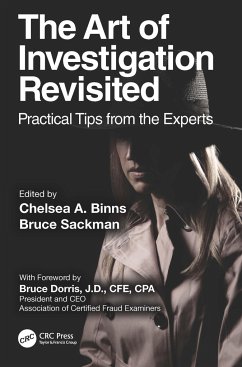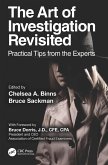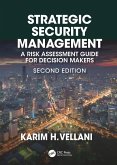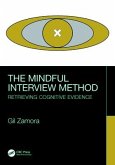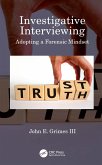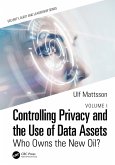The Art of Investigation Revisited: Practical Tips from the Experts examines the qual- ities required to be a professional, thorough, and effective investigator and is a follow up to the authors' highly touted book, The Art of Investigation (2019). This book features a wholly new line-up of investigators, experienced professionals in the field, who delve into the "soft skills" that make an investigator effective. Each chapter examines a specific quality required to be a professional, thorough, and-most importantly-successful in this challenging discipline.
The editors, and contributing authors, are all top in their field and bring a wealth of real-world knowledge and experience to the subject. While several publications exist on the procedures and steps of an investigation, few books cover the creative and intuitive skills required. Such traits are necessary to continually question in the face of investigative roadblocks, unique qualities endemic to an inquisitive mindthat can be trained to improve an investigator's professional skill set. Each chapter discusses the applicability of the traits and requirements to the contributor's own work and experience as an investigator. In doing so, the contributors will provide valuable stories from their personal experience, which demonstrates their use or a given trait and its importance in the course of their investigative work and career.
The case examples included throughout are engaging and, as is often the case, surprising. An investigator must keep an open mind above all else and this book seeks to "lift the veil" on the inner workings of an investigation and the thought pro- cess and inner monologue of an investigator as part of that process. The book is a welcome addition to any investigator's toolkit and is also of interest to students in criminal justice, security and Homeland Security programs, security consultants, corporate and private security professionals, and the legal community.
The editors, and contributing authors, are all top in their field and bring a wealth of real-world knowledge and experience to the subject. While several publications exist on the procedures and steps of an investigation, few books cover the creative and intuitive skills required. Such traits are necessary to continually question in the face of investigative roadblocks, unique qualities endemic to an inquisitive mindthat can be trained to improve an investigator's professional skill set. Each chapter discusses the applicability of the traits and requirements to the contributor's own work and experience as an investigator. In doing so, the contributors will provide valuable stories from their personal experience, which demonstrates their use or a given trait and its importance in the course of their investigative work and career.
The case examples included throughout are engaging and, as is often the case, surprising. An investigator must keep an open mind above all else and this book seeks to "lift the veil" on the inner workings of an investigation and the thought pro- cess and inner monologue of an investigator as part of that process. The book is a welcome addition to any investigator's toolkit and is also of interest to students in criminal justice, security and Homeland Security programs, security consultants, corporate and private security professionals, and the legal community.
"Congrats to Chelsea Binns and Bruce Sackman for reminding us clearly that core skills and learned abilities will always outpace a technology-only approach. This compendium of decades-worth of experience in one text outpaces Chat and AI programs every day and will in the future!" -Cynthia Hetherington, Founder, Hetherington Group and OSMOSIS
"Chelsea and Bruce have leaned on their decades of experience to bring you some of the skills they have learned that make them great investigators. Knowing them personally, as well as several of the fraud examiners in this book, I can assure you there are many takeaways to help you hone your skill set, whether you are just starting out or perhaps transitioning from a long career in government to the private sector." -Bruce Dorris, J.D., CFE, CPA; President and CEO Association of Certified Fraud Examiners
"In a world that is increasingly dependent on technology, it is easy to overlook the core skills essential for an investigator to possess. The Art of Investigation Revisited: Practical Tips from the Experts shines a bright light on these important traits and should be a required part of every investigator's library." -Jeffery G. Hughes, Assistant Inspector General for Investigations, U.S. Department of Veterans Affairs Office of Inspector General - Retired
"This book details qualities that will never surface by artificial intelligence. They are what made Sherlock Holmes and Lt. Columbo adored by millions, as to how they solved seemingly perfect crimes. Increase your skills in these areas and your success as an investigator will be guaranteed." -Paul Italiano, Police Commissioner, Wappinger Falls Police Department, Licensed Private Investigator, New York State
"This is a great follow-up to The Art of Investigation, which I also really enjoyed. Having worked with both brand new and seasoned investigators, there is little doubt that the highly successful possess the skills so well-detailed in this book. Read each chapter carefully and learn from its examples. Without these skills, you simply cannot succeed in this wonderful profession." -Mara McLaughlin, Founder, Mayberry Investigations Corp., Fraud Investigator, New York State Government
"The best investigators have a combination of superb training and actual experience working on cases. They also possess the ability to take the lessons learned from their investigative successes, or failures-and the training courses that created the bases for their investigative skills-and pass them on to their colleagues. In essence, this book is a seminar conducted by those experts: highlighting the training, experience, and wisdom gained by each presenter for the reader to use for completing highly challenging investigations in their careers. As a forensic investigator with 55+ years of experience, I found many points, in the first book by these authors, that will further enhance my own skills. Rx... Read it!" -Lowell J. Levine, DDS, DABFO; Director Medicolegal Investigation Unit (Retired), New York State Police
"The 'soft skills' highlighted in this book are the qualities essential for the successful investigator to possess. In both fiction and real-world detective stories, these are the skills that finally solve the case every time. Without them, the mere collection of evidence will probably never link itself to the right perpetrator." -Alan C. Stoddart, Senior Special Agent, US Department of Commerce, Retired, and Special Investigator, FBI
"Chelsea and Bruce have leaned on their decades of experience to bring you some of the skills they have learned that make them great investigators. Knowing them personally, as well as several of the fraud examiners in this book, I can assure you there are many takeaways to help you hone your skill set, whether you are just starting out or perhaps transitioning from a long career in government to the private sector." -Bruce Dorris, J.D., CFE, CPA; President and CEO Association of Certified Fraud Examiners
"In a world that is increasingly dependent on technology, it is easy to overlook the core skills essential for an investigator to possess. The Art of Investigation Revisited: Practical Tips from the Experts shines a bright light on these important traits and should be a required part of every investigator's library." -Jeffery G. Hughes, Assistant Inspector General for Investigations, U.S. Department of Veterans Affairs Office of Inspector General - Retired
"This book details qualities that will never surface by artificial intelligence. They are what made Sherlock Holmes and Lt. Columbo adored by millions, as to how they solved seemingly perfect crimes. Increase your skills in these areas and your success as an investigator will be guaranteed." -Paul Italiano, Police Commissioner, Wappinger Falls Police Department, Licensed Private Investigator, New York State
"This is a great follow-up to The Art of Investigation, which I also really enjoyed. Having worked with both brand new and seasoned investigators, there is little doubt that the highly successful possess the skills so well-detailed in this book. Read each chapter carefully and learn from its examples. Without these skills, you simply cannot succeed in this wonderful profession." -Mara McLaughlin, Founder, Mayberry Investigations Corp., Fraud Investigator, New York State Government
"The best investigators have a combination of superb training and actual experience working on cases. They also possess the ability to take the lessons learned from their investigative successes, or failures-and the training courses that created the bases for their investigative skills-and pass them on to their colleagues. In essence, this book is a seminar conducted by those experts: highlighting the training, experience, and wisdom gained by each presenter for the reader to use for completing highly challenging investigations in their careers. As a forensic investigator with 55+ years of experience, I found many points, in the first book by these authors, that will further enhance my own skills. Rx... Read it!" -Lowell J. Levine, DDS, DABFO; Director Medicolegal Investigation Unit (Retired), New York State Police
"The 'soft skills' highlighted in this book are the qualities essential for the successful investigator to possess. In both fiction and real-world detective stories, these are the skills that finally solve the case every time. Without them, the mere collection of evidence will probably never link itself to the right perpetrator." -Alan C. Stoddart, Senior Special Agent, US Department of Commerce, Retired, and Special Investigator, FBI

